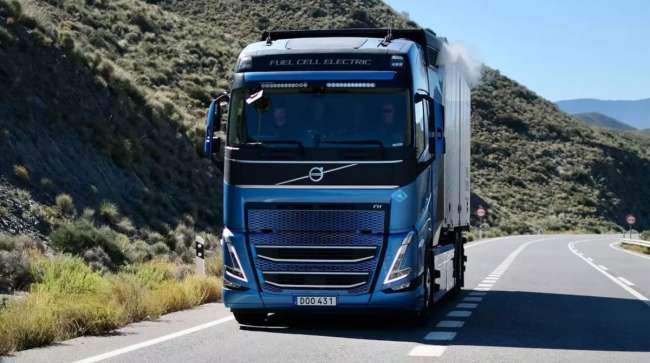Volvo Group has announced that it will begin conducting tests of hydrogen-powered internal combustion engine trucks with select customers in 2026, aiming for commercial production towards the end of the decade. This revelation comes as part of the Swedish trucking leader’s broader strategy to reduce carbon emissions, in partnership with Westport Fuel Systems.
The joint venture between Volvo and Westport, expected to become operational in the second quarter, received European Commission clearance earlier in May. This follows the formalization of their agreement in March, which was initiated by a nonbinding letter of intent signed the previous July.
Jan Hjelmgren, Volvo Trucks’ head of product management and quality, stated that these hydrogen-powered trucks will offer the same performance and reliability as traditional diesel models, but with significantly lower carbon dioxide emissions. This initiative complements Volvo’s existing battery-electric truck offerings, which have been on the market for several years.
Westport’s High Pressure Direct Injection (HPDI) fuel system, which incorporates a small amount of ignition fuel injected at high pressure followed by hydrogen, is said to enhance energy efficiency, reduce fuel consumption, and increase engine power. Trucks equipped with HPDI will qualify as “zero-emission vehicles” under EU carbon dioxide regulations.
These hydrogen internal combustion engine trucks will be part of Volvo’s broader portfolio alongside hydrogen fuel cell electric vehicles. The company is currently running internal tests on fuel cell electric trucks, with plans to begin customer testing in 2025.
Volvo aims for all its new trucks to be zero-emission vehicles by 2040. Hjelmgren emphasized the need for multiple technologies to achieve decarbonization of heavy transport. This diversified approach is intended to give customers options based on their specific transport needs, infrastructure availability, and green energy costs.
In addition, Volvo’s decarbonization strategy includes internal combustion engines using biodiesel and hydrotreated vegetable oil (HVO). As of May 16, the company reported that its entire range of European trucks can now operate on 100% biodiesel.
Source: Transport Topics
Image: Volvo Trucks











